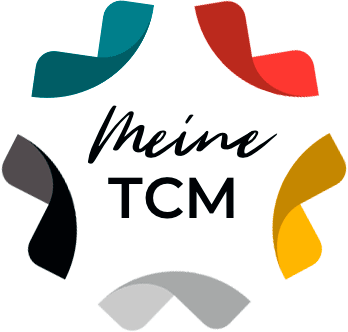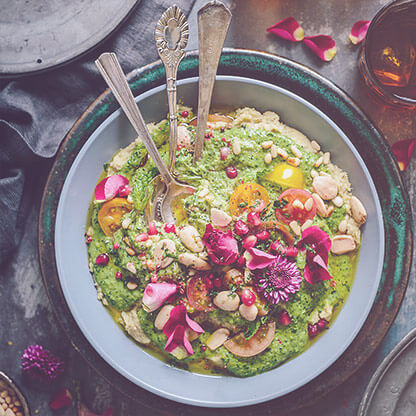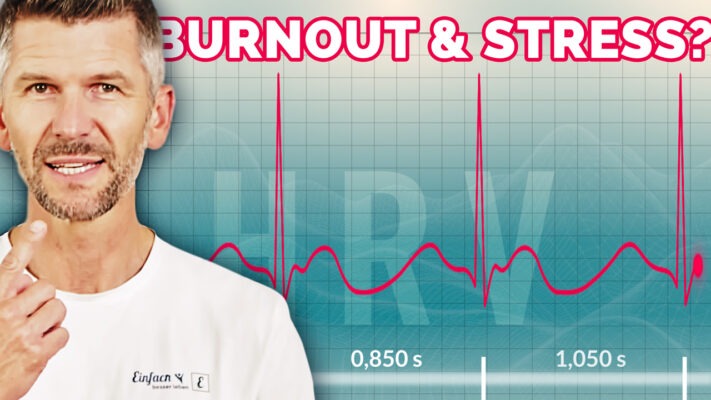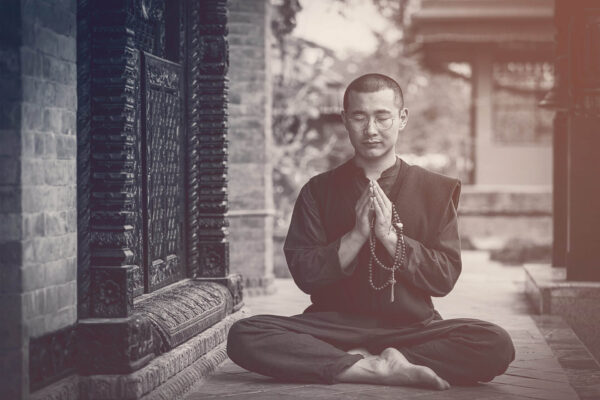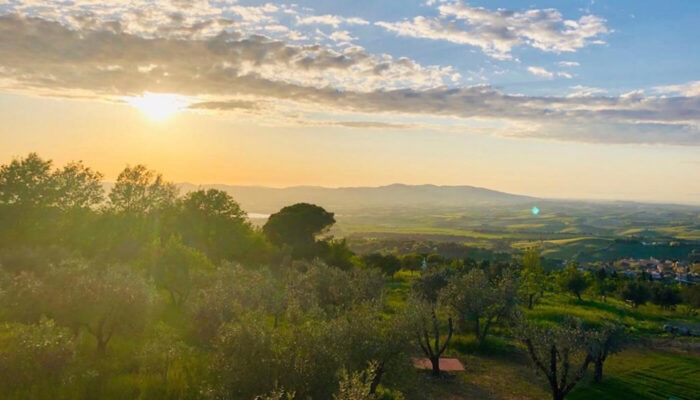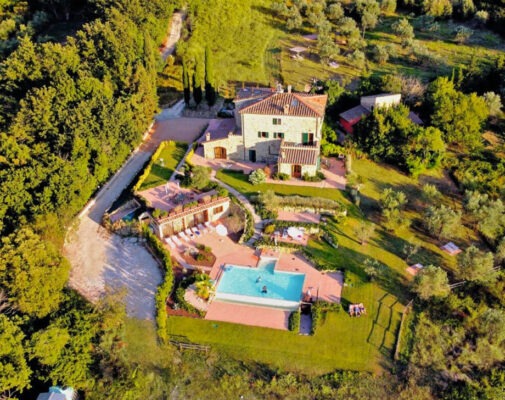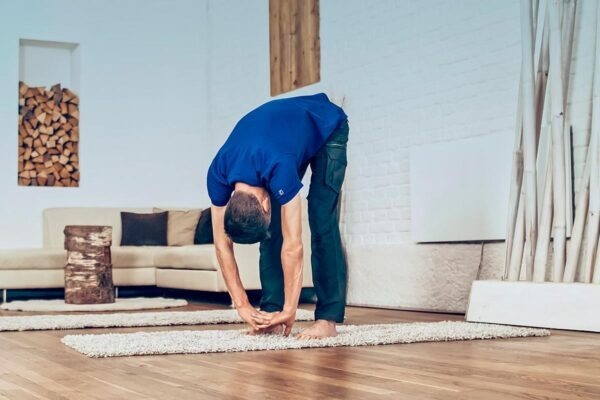Re-enactment of an ancient pharmacy in China
What is the structure of a TCM herbal formula?
Traditional Chinese herbal formulas are composed of herbal and mineral ingredients that are processed into medicines. Since these medicines are mostly herbal in nature, they are referred to as Chinese "herbal therapy". In China, 90 % of all patients are treated with medicinal herbs. Herbal therapy is a very comprehensive treatment method, which, among doctors as well as patients, is highly regarded.
In TCM there are clear instructions on how to process and take such herbal formulas. Also, the effect of the recipes and the individual herbs themselves, are explained in detail. A recipe basically consists of several herbs. In some cases, this can be 10-20 herbs.
The origins of herbal therapy go back a long way. People, due to health problems, have always been looking for ways to cure their ailments, in closer surroundings. In doing so, they have come across the effect of herbs. However, since herbs were taken only one by one, they showed a very limited effect. In the case of the right choice of herbs, however, this can still be very impressive. In our country, herbs are often still used individually. For example, chamomile is used for stomach aches and valerian for insomnia.
In China, people have always relied on the combination of several herbs, which were mixed into one recipe. These formulas were composed according to very specific criteria, which have not changed significantly to this day.
Due to this complex composition of herbs, the effect is a very broad. The individual active ingredients complement each other and thus the healing effect multiplies considerably.
A Chinese herbal recipe is structured as follows:
1.) The Emperor herb is that ingredient which is to remedy the basic pattern of disease and thus has the greatest effect. In a person with qi deficiency, emperor's weed is a so-called qi tonic, that is, an herb that strengthens qi.
2.) The Minister's weed supports the emperor's weed. It has a similar effect, but in addition, other effects as the emperor's herb. So the minister herb is not as specific as the emperor's herb, but for this it gives the recipe a little more breadth and especially effect.
3.) The Police weed, also called adjutant, again supports the first two herbs. However, it somewhat weakens the one-sided effect of the first two. If one would have warming herbs in a recipe, the police herb would be a very slightly cooling herb, so that the body does not develop too much heat in the long run and thus dryness sets in.
4.) The Embassy herb is something very special in herbal therapy. Namely, a kind of signpost that gives the mixture a direction of action. The direction of action can be directed to a specific organ, such as the liver. But it can also indicate a part of the body as a direction, such as the neck or knees. The message herb directs the action of the formula to a specific area of the body or a specific meridian. At the same time, the message herb harmonizes the action of the other ingredients.
The decision of the right herbal mixture is made according to the 8 diagnostic principles of TCM.
These are:
- Yin/ Yang
- Interior/ exterior
- Cold/ heat
- Emptiness/ Fullness
At the same time, it is necessary to pay attention to the pathogenic factors, that is, the disturbing and pathogenic factors that can come from outside or inside.
External factors:
- Wind: this damages the Wood element
- Heat: this damages the Fire element
- Cold: this damages the Water element
- Humidity: this damages the Earth element
- Drought: this damages the Metal element
Internal factors:
- Anger, rage
- Overexcited
- Fear, shock
- Ponder
- Grief, sorrow
Forms of preparation of herbs
A frequently used method of preparation is the Decoction. This is a kind of soup or decoction. The individual herbs are first soaked and then slowly cooked. The cooking time depends on whether the herbs are roots, barks, leaves or flowers. Flowers, for example, are cooked only very briefly and added at the very end. You can prepare a decoction yourself. However, this requires some experience and, above all, time. A homemade decoction can be taken for about 3-4 days. Then a new decoction must be made. Many pharmacies now also offer ready-made decoction, which can be kept in the refrigerator for about 2 weeks. In practice, so-called granules are prescribed more and more often, which are much easier to handle and take.
Granules are herbal powders that only need to be poured over with hot water to be able to take them. The granules consist of individual boiled herbs. When the decoction is boiled, the remaining liquid is dried and the powder, the granules remain over. The individual herbal powders are then in turn mixed into the appropriate formulas. The granules are much easier to handle than the decoction. Especially if you travel or are on the road a lot for business, it proves to be much more practical. The effect is not as strong, but the patients are more consistent with the intake because of the easier handling. This makes up for the somewhat weaker effect.
Pressed pellets (tablets): The granules can also be pressed by the pharmacy and processed into so-called pellets. This simplifies the intake even more. One takes 2-4 pieces of the pressed pellets daily. In our manufacturer, these pellets have a particularly high quality, because the pressing is done without fillers. If herbal formulations contain mushrooms, the powder can also be taken in capsule form. The capsule form is necessary because the mushroom ingredients cannot be pressed.
Quality of herbal products
We use only TCM herbs and products grown in China, specifically for medical use in Europe. These medicinal herbs are grown under strict conditions and tested in Germany by certified laboratories. The herbs are tested for pesticides, herbicides and other toxins.
Basically, Chinese medicinal herbs are very well studied and there are records for many centuries about their effects. The herbs have been in practice for a long time and, if controlled and their quality thus confirmed, are completely safe.
How do Chinese herbs work?
In TCM, it is assumed that the body, in the case of illness, has lost its inner balance. A dysbalance arises. Herbs do nothing other than to balance this imbalance as well as possible. Since this imbalance is in most cases quite complex, the herbs are also combined into formulas, since their effect is broader than that of the individual herbs. For example, if a body has too much heat, herbs can be used to cool it down. If someone suffers from constipation, herbs can be used for elimination. Against dryness there are moisturizing agents.
From the Western point of view, herbs contain amino acids, starch, vitamins, minerals, trace elements, enzymes, alkaloids, essential oils and much more.
Important note
Do not exceed the recommended daily intake. Food supplements should not be considered as a substitute for a balanced diet and a healthy lifestyle. Keep the products closed, cool, dry and out of reach of children.
